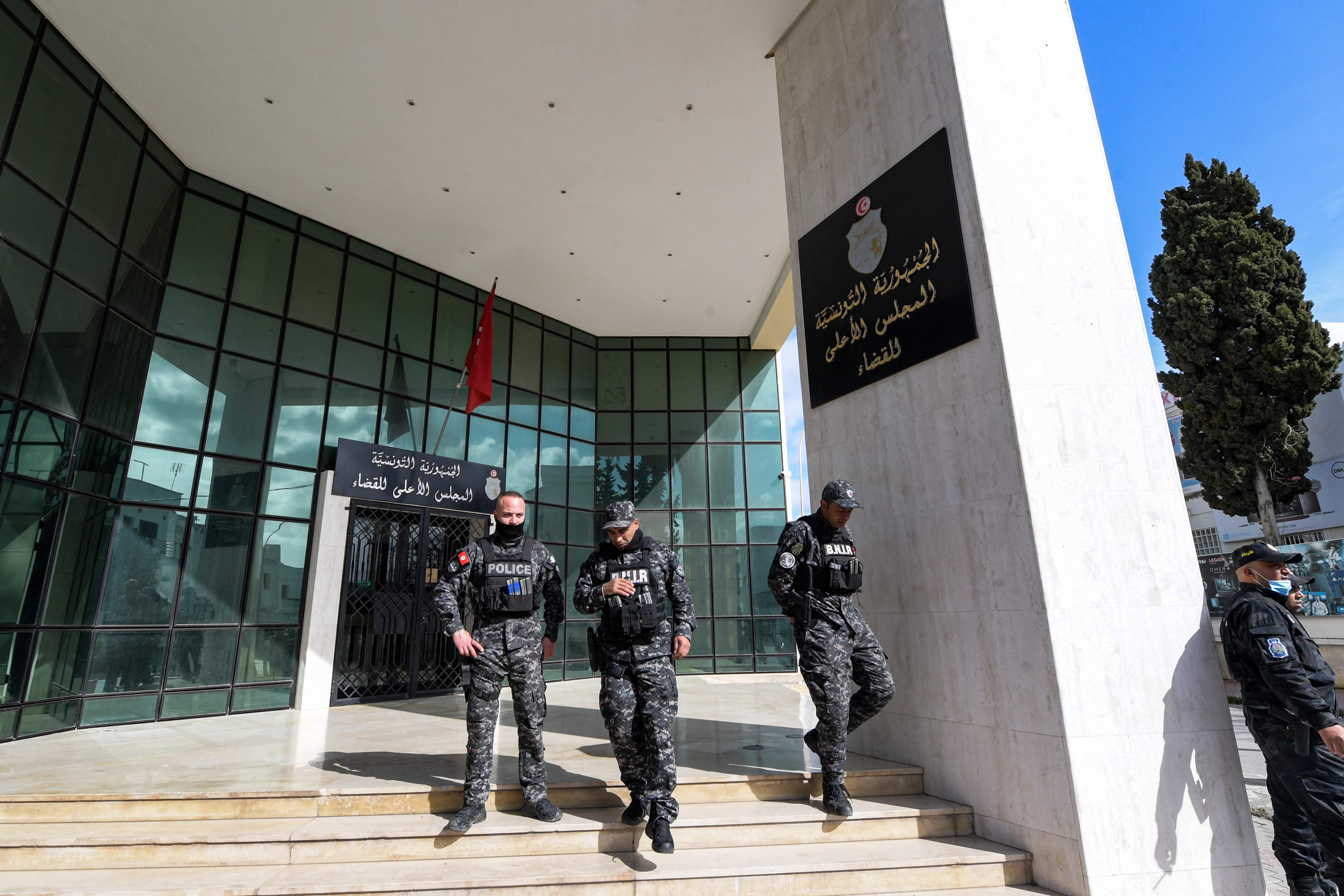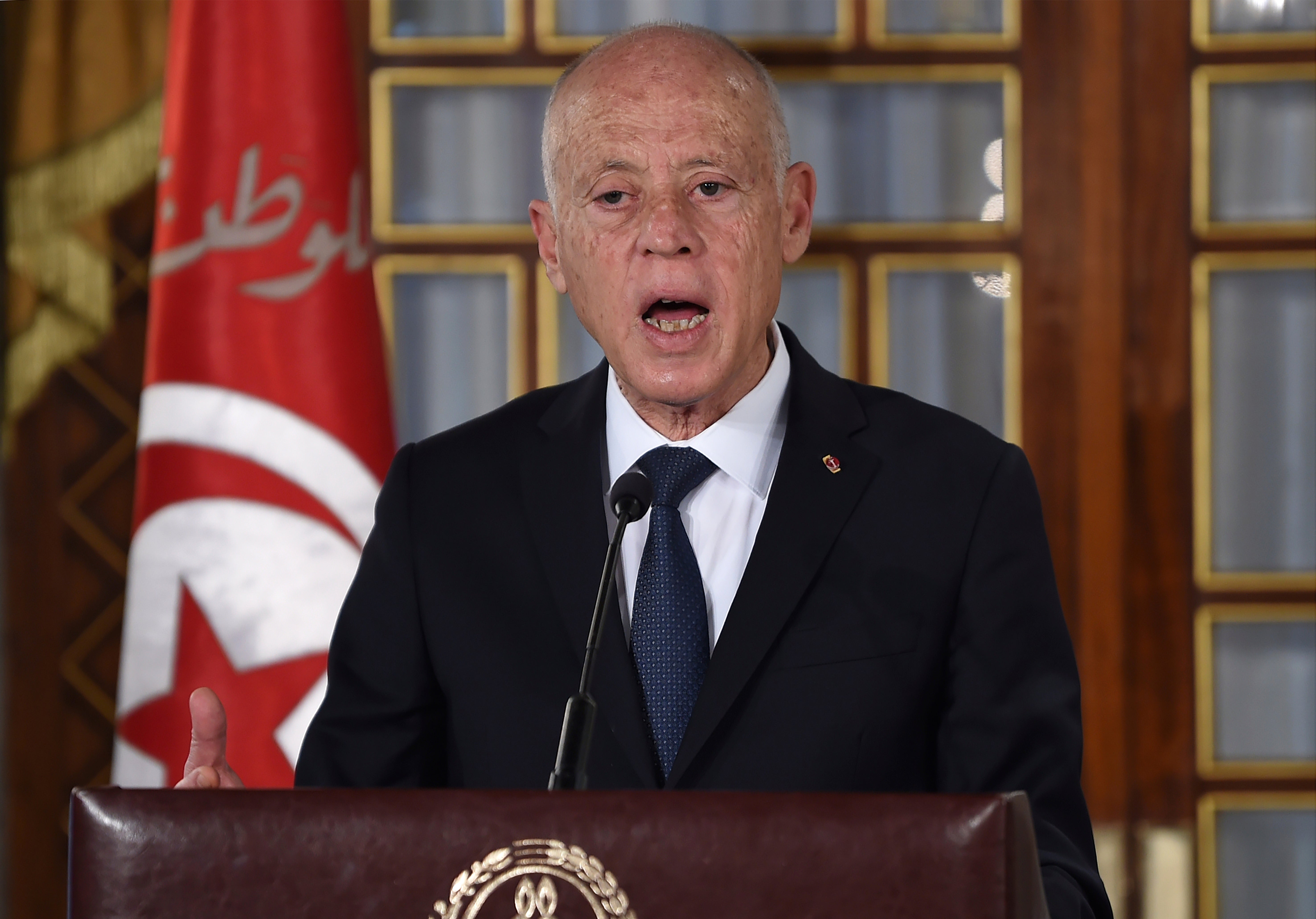Tunisia’s top legal body shuttered after dissolution by President Saied
Tunisian leader Kais Saied’s crackdown on the judiciary has raised fears over the rule of law

Your support helps us to tell the story
From reproductive rights to climate change to Big Tech, The Independent is on the ground when the story is developing. Whether it's investigating the financials of Elon Musk's pro-Trump PAC or producing our latest documentary, 'The A Word', which shines a light on the American women fighting for reproductive rights, we know how important it is to parse out the facts from the messaging.
At such a critical moment in US history, we need reporters on the ground. Your donation allows us to keep sending journalists to speak to both sides of the story.
The Independent is trusted by Americans across the entire political spectrum. And unlike many other quality news outlets, we choose not to lock Americans out of our reporting and analysis with paywalls. We believe quality journalism should be available to everyone, paid for by those who can afford it.
Your support makes all the difference.Tunisian police have locked the doors of the Supreme Judicial Council and stopped staff from entering the building, a day after President Kais Saied dissolved the country’s legal body.
Mr Saied announced on Sunday that he was disbanding the council, one of the few remaining state bodies still able to act independently of him, after months of criticism of its judges.
“In this council, positions and appointments are sold according to loyalties. Their place is not the place where they sit now, but where the accused stand,” Mr Saied said in speech in the interior ministry.
“You cannot imagine the money that certain judges have been able to receive, billions and billions,” he added.
The president’s announcement has raised fears for the rule of law in Tunisia after his seizure of almost total power last summer in a move his critics have branded a coup, with judges’ associations accusing him of an illegal act that undermines judicial independence .
"The president has moved to the stage of seizing institutions. What is happening is very dangerous and illegal," said council head Youssef Bouzakher.
“Judges will not stay silent”.
Two other judicial organisations condemned the move as unconstitutional. The Young Magistrates Association said it was part of a political purge of the judiciary and the Judges Association said Mr Saied was trying to amass all powers in his own hands.
The Supreme Judicial Council is an independent and constitutional institution, formed in 2016. Its powers include ensuring the independence of the judiciary, disciplining judges and granting them professional promotions.

Mr Saied has been consolidating his powers since last summer when he suspended parliament, dismissed the prime minister and said he could rule by decree, and he has grown increasingly critical of the judiciary.
A constitutional law professor before he ran for president in 2019, and the husband of a judge, Mr Saied has accused Tunisia’s judicial hierarchy of being corrupt and serving the interests of political factions.
Last month, the president revoked all financial privileges for members of the council.
Tunisia’s dire economic problems and a looming crisis in public finances risk undermining Mr Saied’s declared plan to reset the 2011 revolution with a new constitution, raising the possibility of public unrest.
Reuters



Join our commenting forum
Join thought-provoking conversations, follow other Independent readers and see their replies
Comments